Beginner's Guide to Trekking Poles
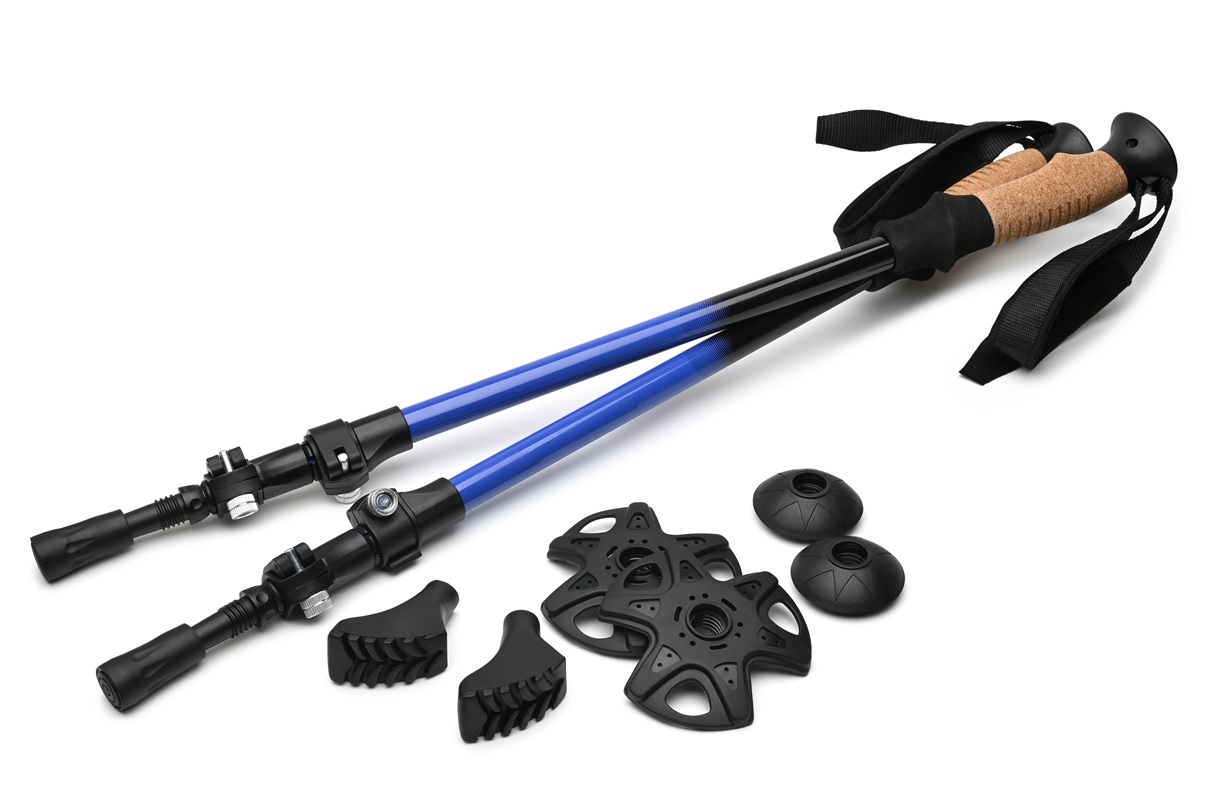
Table of Contents
Why Use Trekking Poles?
Trekking poles, aka hiking poles, provide the following benefits:
- Prevent you from slipping and falling on slippery surfaces
- Help you catch yourself when you trip or stumble
- Provide stability during river crossings
- Reduce impact on joints
- Assist you in climbing or descending steep slopes
- Some types have adjustable lengths that can be shortened for hiking uphill or lengthened for hiking downhill
- Lighter and easier to store than walking sticks
- Can be used to hold up trekking-pole tents
In my opinion, trekking poles aren’t crucial for most budget backpackers. For safety, however, some hiking conditions require at least some kind of walking stick with a tip that won’t slip on the ground surface. I’ve used cross-country ski poles, and they worked just fine. You can carve a walking stick out of a sturdy tree branch, although it might be heavy and increase fatigue.
On icy surfaces, you’ll need proper trekking poles and crampons. It’s wise to use trekking poles during river crossings.
Trekking poles range from moderately priced to very expensive, but affordable options exist.
Pole Structures

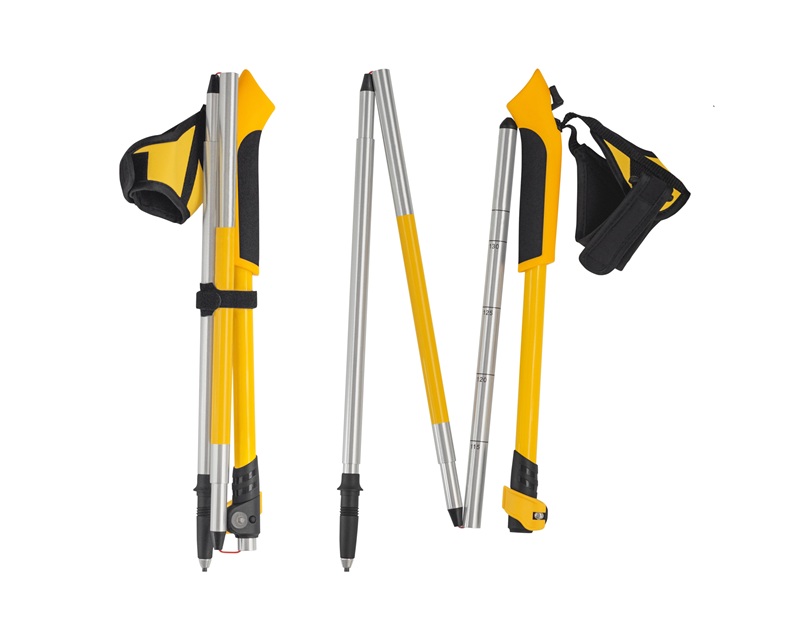
Pole Structure Description Pros Cons Telescoping Collapses like a telescope Strong • Not as compact as foldable poles
• Heavier than foldable polesFoldable
= Z-type• Sections connected with an elastic cord
• Folds like a tent pole• Very compact
• Lightweight• Length not adjustable
• Not as strong as telescoping poles
• Some don’t have removable basketsCombination • One section telescopes for length adjustment
• Other section folds• Versatile
• Combines best features of telescoping and foldable poles
• Allows sufficient length adjustment• Not as light as foldable poles
• Not as strong as telescoping polesNon adjustable One continuous shaft • Strong
• LightweightLength not adjustable
Lock Mechanisms for Telescoping Poles
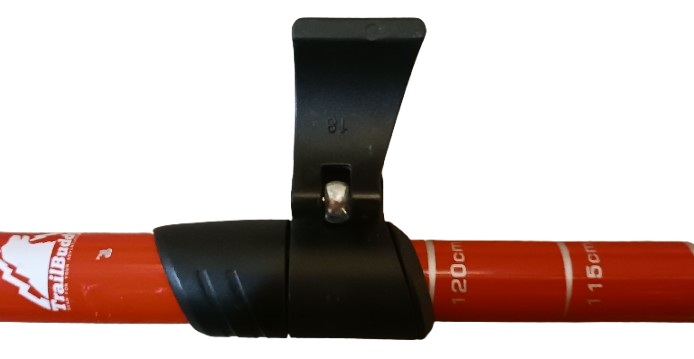
Lock Mechanism Description Pros Cons Lever lock,
also called
flip lock
flip style
clamp lock
quick lock
speed lock
external lockClamps engaged by levers • Quick and easy to adjust
• Easy to use while wearing glovesLevers can fall off some cheap brands if the bolt becomes loose Twist lock Twist to lock • Strong
• Durable
• Lightweight• Somewhat hard to use while wearing gloves
• Hands get cold when using without glovesPush-button lock • Locks automatically when pole is extended
• Push button to unlockLocks automatically • Limited length options; length can’t be fine-tuned
• Very hard to unlock while wearing gloves
• Hands get cold when unlocking without glovesCombination lock Combination of locking mechanisms, e.g., lever lock on upper shaft and twist lock on lower shaft Balance of strength, light weight, and ease of use Cons of each lock mechanism
Special Types of Trekking Poles
Shock-absorbing
Contain springs that absorb shock for walking downhill. The shock-absorbing feature can be disengaged. Recommended for hikers who have issues with their hips, knees or ankles.
Camera Mount
Include a camera mount under the handle so the pole to be used as a monopod.
Shaft Materials
Shaft Material Pros Cons Aluminum • Durable
• Affordable• Heavy
• Can bend under stressCarbon fiber or carbon-fiber composite • Lightweight
• Stiff
• Strong when loaded vertically
• Weak when bent horizontally
• Easily chip or crack
• Brittle; can snap under stress
• Expensive
Grip Materials
Rubber
Keeps your hands warm
Foam
Absorbs sweat from your hands
Cork
Best for absorbing sweat from hands
Baskets and Tips
Rubber Tips

- Absorb shock on paved surfaces
- Reduce damage to trails
Rubber Feet
- Provide forward propulsion to speed up pace
- Improve stability
- Absorb shocks
- Don’t slip on hard surfaces such as paved roads
Mud Baskets
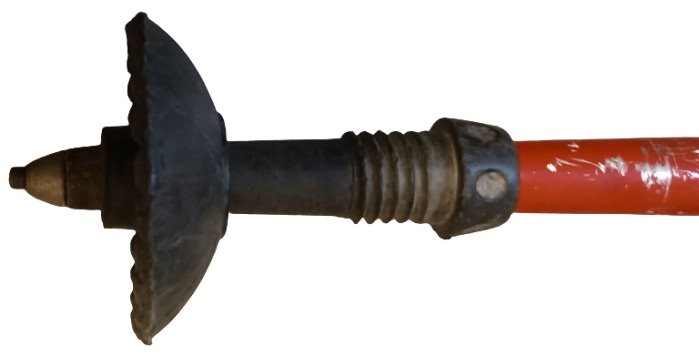
- Prevent sinking in mud and sand
- Prevent mud from splashing on your clothes
Snow Baskets
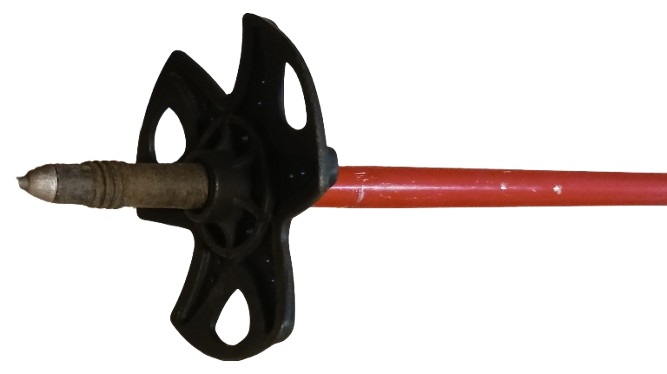
Provide flotation on snow, like snowshoes
